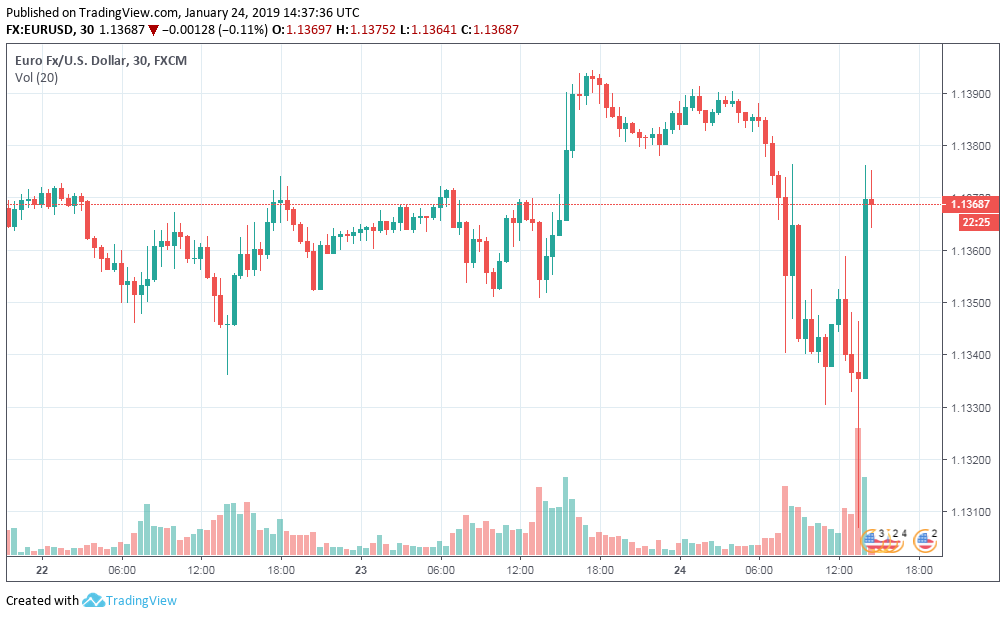Poor Eurozone data means the ECB will want to keep interest rates low for longer, says Fawad Razaqzada, Market Analyst, Forex.com.
This morning saw the euro drop and stocks rebound slightly as poor Eurozone data means the European Central Bank (ECB) will want to keep interest rates low for longer.
More disappointing data out of the Eurozone was released this morning. This time it was the latest Purchasing Managers’ Indices, which for a second straight month disappointed expectations and underscored growth concerns. As a result of the weakness in data, the euro EUR/USD gave back its entire gains made yesterday and some, while the regions stock indices rebounded from their losses yesterday (see chart). But it remains to been whether stocks will be able to hold onto their gains given the rising levels of global growth concerns, even if it means the ECB may keep its policy loose for longer.

The poor PMI numbers came ahead of the ECB’s latest policy decision later this afternoon. Given the euro’s recent weakness, investors expect Mario Draghi to lean more towards the dovish side than hawkish. But despite the weakness in data and ongoing Brexit uncertainty, not to mention weakness in China and other emerging market economies, the ECB President will want to sound as positive as he can be. The key question is whether he will reiterate the ECB’s plans to raise interest rates at the end of the summer. Any noticeable change in the tone could see the euro move sharply lower. However, at least some of the negativity may already be priced in, so the potential losses for the single currency could be limited, as we mentioned in our ECB preview yesterday.
As mentioned, today’s Eurozone PMI data was weak. The region’s services sector printed 50.8 vs. 51.2 last month and 51.5 expected. The manufacturing sector also barely grew at 50.5 vs. 51.5 expected. A reading above 50.0 indicates growth while below 50.0 points to contraction. So, both sectors grew but at a slower pace.
The weakness was led by Eurozone’s largest economies. German manufacturing fell into contraction in January with the PMI printing 49.9 vs. 51.8 in December – its lowest level in four years. French services fell further into contraction with the PMI’s latest reading being just 47.5 vs. 49.0 last month and 50.6 expected - the lowest in almost five years. However, it wasn’t all doom and gloom: German services and French manufacturing sectors both fared better with readings of 53.1 (vs. 51.8 last month and 52.2 expected) and 51.2 (vs. 49.7 last month and 50.0 expected), respectively.
IHS Markit economist Eliot Kerr said of the French data: “The latest decline was the fastest for over four years, even quicker than the fall in protest-hit December. It is unclear whether the latest weak performance was caused by the resulting disruption, or whether the anticipated global economic slowdown for 2019 is already beginning to take hold.”
On the German manufacturing data, Phil Smith, economist at IHS, said that “the sector’s order book situation continued to worsen, showing the steepest decline in incoming new work since 2012, adding that “weakness in the auto industry was once again widely reported, as was a slowdown in demand from China.”











